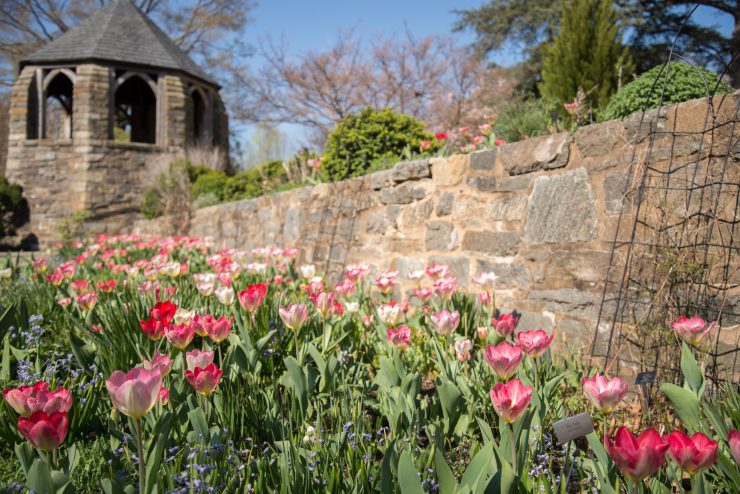The Rev. Canon Jan Naylor Cope

John 4:1-26
Now when Jesus learned that the Pharisees had heard, “Jesus is making and baptizing more disciples than John” —although it was not Jesus himself but his disciples who baptized— he left Judea and started back to Galilee. But he had to go through Samaria. So he came to a Samaritan city called Sychar, near the plot of ground that Jacob had given to his son Joseph. Jacob’s well was there, and Jesus, tired out by his journey, was sitting by the well. It was about noon.
A Samaritan woman came to draw water, and Jesus said to her, “Give me a drink.” (His disciples had gone to the city to buy food.) The Samaritan woman said to him, “How is it that you, a Jew, ask a drink of me, a woman of Samaria?” (Jews do not share things in common with Samaritans.) Jesus answered her, “If you knew the gift of God, and who it is that is saying to you, ‘Give me a drink,’ you would have asked him, and he would have given you living water.” The woman said to him, “Sir, you have no bucket, and the well is deep. Where do you get that living water? Are you greater than our ancestor Jacob, who gave us the well, and with his sons and his flocks drank from it?” Jesus said to her, “Everyone who drinks of this water will be thirsty again, but those who drink of the water that I will give them will never be thirsty. The water that I will give will become in them a spring of water gushing up to eternal life.” The woman said to him, “Sir, give me this water, so that I may never be thirsty or have to keep coming here to draw water.”
Jesus said to her, “Go, call your husband, and come back.” The woman answered him, “I have no husband.” Jesus said to her, “You are right in saying, ‘I have no husband’; for you have had five husbands, and the one you have now is not your husband. What you have said is true!” The woman said to him, “Sir, I see that you are a prophet. Our ancestors worshiped on this mountain, but you say that the place where people must worship is in Jerusalem.” Jesus said to her, “Woman, believe me, the hour is coming when you will worship the Father neither on this mountain nor in Jerusalem. You worship what you do not know; we worship what we know, for salvation is from the Jews. But the hour is coming, and is now here, when the true worshipers will worship the Father in spirit and truth, for the Father seeks such as these to worship him. God is spirit, and those who worship him must worship in spirit and truth.” The woman said to him, “I know that Messiah is coming” (who is called Christ). “When he comes, he will proclaim all things to us.” Jesus said to her, “I am he, the one who is speaking to you.”
The story of Jesus and the Samaritan woman at the well is one of my favorites. There is so much going on in this story, but it is the chance encounter at the well that always invites me to go deeper. The text states that Jesus had to go through Samaria heading from Judea to Galilee, but it was possible for Jews to go around Samaria so they would not encounter “the other.” At that time, Jews and Samaritans did not mix and considered one another “the other.” Jesus deliberately chose to go through Samaria, knowing that, by doing so, he was likely to encounter those with whom he was not supposed to mix.
The Samaritan woman, breaking with the pattern of women who customarily went to the well in the early morning to avoid the heat of the day, goes to the well at noon and finds Jesus there. She is surprised that Jesus addresses her, a Samaritan woman, and that opens the chance encounter that changes everything! Jesus talks to her about living water that will never perish, and this Samaritan woman wants what Jesus is offering. After the ensuing conversation about her marital status and Jesus’ indication that he knows her history without being told, Jesus invites her to go more deeply, proclaiming that he is the Messiah. The Samaritan woman could have been paralyzed by the shame of her story that Jesus clearly knows, but there is something so compelling about Jesus and the living water that she dares to believe!
In this season of Lent, this story is a welcome reminder that no shame or cultural norm should hold us back from a chance encounter with Jesus. Jesus offers that same living water to you and to me. It is up to us to believe and drink deeply.
In faith,
Jan+
O God, by your Word you marvelously carry out the work of reconciliation: Grant that in our Lenten fast we may be devoted to you with all our hearts, and united with one another in prayer and holy love; through Jesus Christ our Lord, who lives and reigns with you and the Holy Spirit, one God, for ever and ever. Amen.
(Lesser Feasts and Fasts)